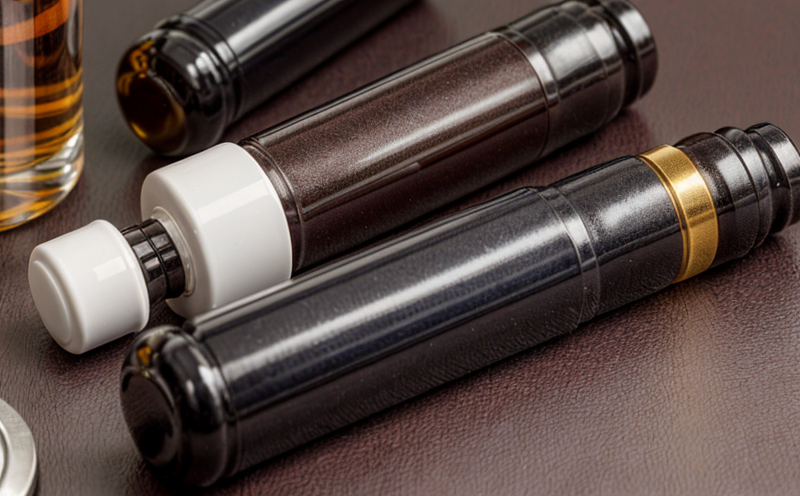
-
Pharmaceutical Compliance-
Pharmaceutical Biologics and Biosimilars Compliance-
Compliance with Biosimilar Market Entry Regulations
We provide comprehensive solutions designed to help our clients mitigate risks, enhance performance, and excel in key areas such as quality, health & safety, environmental sustainability, and social responsibility.
Discover
For many years, our organization has been operating successfully, boasting modern laboratories that meet international standards. These laboratories are equipped with the latest technology devices and equipment, and we have built a strong team of experienced and trained personnel to operate them.
DiscoverWelcome to Eurolab, your partner in pioneering solutions that encompass every facet of life. We are committed to delivering comprehensive Assurance, Testing, Inspection, and Certification services, empowering our global clientele with the ultimate confidence in their products and processes.
Discover
-
Pharmaceutical Compliance-
Pharmaceutical Biologics and Biosimilars Compliance-
Compliance with Biosimilar Market Entry RegulationsCompliance with Biosimilar Market Entry Regulations: A Comprehensive Guide
The biosimilars market has witnessed significant growth in recent years, driven by the increasing demand for affordable biologic medicines. As more biosimilars enter the market, regulatory bodies have introduced new regulations to ensure their quality, safety, and efficacy. Compliance with these regulations is crucial for manufacturers, as non-compliance can lead to product recalls, reputational damage, and financial losses.
Regulatory Framework
The regulatory framework governing biosimilars varies across countries, but most follow the guidelines set by the World Health Organization (WHO) and the International Conference on Harmonisation (ICH). The WHO has established a framework for the evaluation of biosimilars, which includes the following steps:
Step 1: Pre-submission Manufacturers must submit their proposal to the regulatory agency, including details about the biosimilars manufacturing process, quality control measures, and clinical trial data.
Step 2: Submission The manufacturer submits a complete dossier, including all required documents, such as protocols, results, and summaries of clinical trials.
Step 3: Review Regulatory agencies review the application, ensuring compliance with local regulations and WHO guidelines.
Step 4: Approval If the application is approved, the biosimilar product is granted market authorization.
Regulatory Requirements for Biosimilars
Biosimilars must comply with various regulatory requirements to ensure their quality, safety, and efficacy. Some key requirements include:
Manufacturing process: The manufacturing process must be similar to that of the originator biologic, with slight modifications allowed.
Quality control measures: Manufacturers must implement robust quality control measures to ensure the biosimilars consistency, purity, and potency.
Clinical trial data: Biosimilars require clinical trials to demonstrate their safety and efficacy compared to the originator biologic.
Labeling and packaging: The labeling and packaging of biosimilars must comply with local regulations and WHO guidelines.
Detailed Regulations for Biosimilar Manufacturers
Biosimilar manufacturers must comply with various regulations, including:

Military Equipment Standards
Military Equipment Standards: Ensuring Effectiveness and Safety The use of military equipment is a ...

Environmental Impact Assessment
Environmental Impact Assessment: A Comprehensive Guide Environmental Impact Assessment (EIA) is a c...

Chemical Safety and Certification
Chemical safety and certification are critical in ensuring the safe management of products and proce...

MDR Testing and Compliance
MDR Testing and Compliance: A Comprehensive Guide The Medical Device Regulation (MDR) is a comprehe...

Product and Retail Standards
Product and Retail Standards: Ensuring Quality and Safety for Consumers In todays competitive marke...

Transportation and Logistics Certification
Transportation and Logistics Certification: A Comprehensive Guide The transportation and logistics ...

Automotive Compliance and Certification
Automotive Compliance and Certification: Ensuring Safety and Efficiency The automotive industry is ...

Renewable Energy Testing and Standards
Renewable Energy Testing and Standards: Ensuring a Sustainable Future The world is rapidly transiti...

IT and Data Center Certification
IT and Data Center Certification: Understanding the Importance and Benefits The field of Informatio...

Lighting and Optical Device Testing
Lighting and Optical Device Testing: Ensuring Performance and Safety Lighting and optical devices a...

Pharmaceutical Compliance
Pharmaceutical compliance refers to the adherence of pharmaceutical companies and organizations to l...

Cosmetic Product Testing
The Complex World of Cosmetic Product Testing The cosmetics industry is a multi-billion-dollar ma...

Aviation and Aerospace Testing
Aviation and Aerospace Testing: Ensuring Safety and Efficiency The aviation and aerospace industr...

Battery Testing and Safety
Battery Testing and Safety: A Comprehensive Guide As technology continues to advance, battery-power...

Agricultural Equipment Certification
Agricultural equipment certification is a process that ensures agricultural machinery meets specific...

Pressure Vessels and Installations Testing
Pressure Vessels and Installations Testing Pressure vessels are a critical component of various ind...

Electrical and Electromagnetic Testing
Electrical and Electromagnetic Testing: A Comprehensive Guide Introduction Electrical and electrom...

Energy and Sustainability Standards
In today’s rapidly evolving world, businesses face increasing pressure to meet global energy a...

Environmental Simulation Testing
Environmental Simulation Testing: A Comprehensive Guide In todays world, where technology is rapidl...

Fire Safety and Prevention Standards
Fire Safety and Prevention Standards: Protecting Lives and Property Fire safety and prevention stan...

NEBS and Telecommunication Standards
Network Equipment Building System (NEBS) and Telecommunication Standards The Network Equipment Bu...

Electromechanical Safety Certification
Electromechanical Safety Certification: Ensuring Compliance and Protecting Lives In todays intercon...

Healthcare and Medical Devices
The Evolution of Healthcare and Medical Devices: Trends, Innovations, and Challenges The healthcare...

Trade and Government Regulations
Trade and government regulations play a vital role in shaping the global economy. These regulations ...

Industrial Equipment Certification
Industrial equipment certification is a critical process that ensures industrial equipment meets spe...

Railway Industry Compliance
Railway Industry Compliance: Ensuring Safety and Efficiency The railway industry is a critical comp...

Food Safety and Testing
Food Safety and Testing: Ensuring the Quality of Our Food As consumers, we expect our food to be sa...

Construction and Engineering Compliance
Construction and Engineering Compliance: Ensuring Safety, Quality, and Regulatory Adherence In the ...

Hospitality and Tourism Certification
Hospitality and Tourism Certification: Unlocking Opportunities in the Industry The hospitality and ...

Consumer Product Safety
Consumer Product Safety: Protecting Consumers from Harmful Products As a consumer, you have the rig...